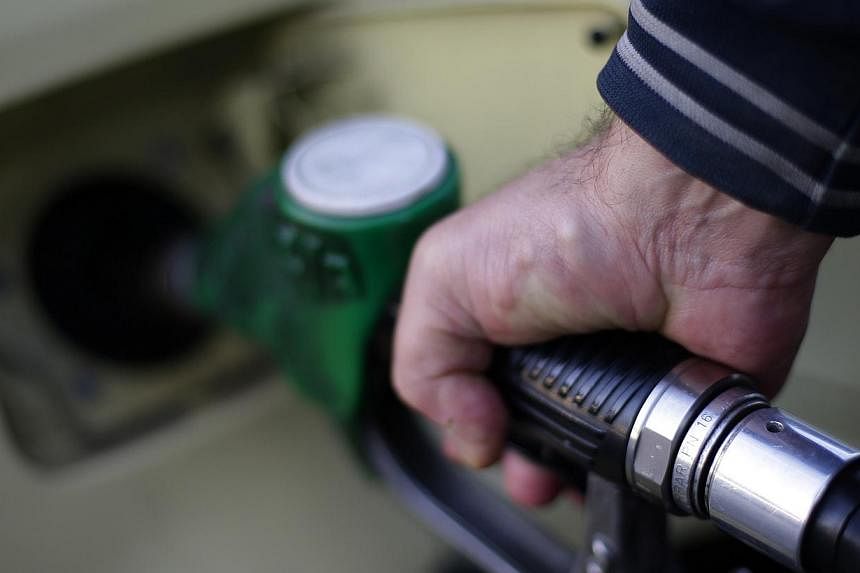MELBOURNE (Bloomberg) - Oil advanced for a fourth day, the longest rising streak since August, while gasoline extended gains as strikes continued at United States refineries that account for 10 per cent of the nation's capacity.
Futures climbed as much as 1.8 per cent in New York. The United Steelworkers union's work stoppage, which started Feb 1 at nine sites, has resulted in the shutdown of one plant while management has taken control of operations at six other facilities.
Crude stockpiles probably expanded by 3.75 million barrels last week as refiners reduced processing, a Bloomberg News survey shows before an Energy Information Administration report on Wednesday.
Oil is rising amid speculation that a prolonged strike will curb fuel supply in the world's biggest consumer. Crude remains near the lowest level in almost six years because of a global surplus, with Russia producing close to a post-Soviet record while Iraq and Saudi Arabia led output increases by OPEC.
"Constraints on product will add a little bit of pressure to the topside," Jonathan Barratt, the chief investment officer at Ayers Alliance Securities in Sydney, said by phone. "The market really focused on the EIA numbers last week and I think it'll be something that we'll all be looking at to see how much production will come from shale oil." West Texas Intermediate for March delivery rose as much as 89 US cents to US$50.46 a barrel in electronic trading on the New York Mercantile Exchange and was at US$49.92 at 12:10 pm Singapore time. The contract gained US$1.33 to US$49.57 on Monday, the highest close since Jan. 5. The volume of all futures traded was about 20 per cent above the 100-day average.
US Strike Brent for March settlement climbed as much as 44 US cents, or 0.8 per cent, to US$55.19 a barrel on the London-based ICE Futures Europe exchange. It increased US$1.76 to US$54.75 on Monday. The European benchmark crude traded at a premium of US$5.21 to WTI.
The union, which represents workers at more than 200 refineries, terminals, pipelines and chemical plants, rejected five offers made by Royal Dutch Shell Plc on behalf of companies including Exxon Mobil Corp. and Chevron Corp. since talks began Jan. 21. The sites affected by the halt can produce about 1.82 million barrels a day of fuel, data compiled by Bloomberg show.
US refiners probably cut operating rates by 1 percentage point in the week ended Jan 30, according to the median estimate in the Bloomberg survey of five analysts. Runs averaged 85.5 per cent of capacity through Jan. 16, the lowest since April 2013, said the EIA, the Energy Department's statistical arm.
Russia, OPEC Gasoline futures for March delivery advanced as much as 1.6 percent to US$1.5691 a gallon in New York. The contract closed at a five-week high of US$1.5446 on Monday.
In Russia, production was at 10.657 million barrels a day of crude last month, little changed from December's record of 10.66 million, preliminary data from the Energy Ministry's CDU- TEK group showed on Feb. 2. Soviet-era crude and condensate output peaked at 11.48 million a day in 1987, BP Plc data show.
The Organisation of Petroleum Exporting Countries, which supplies about 40 per cent of the world's oil, pumped 30.91 million barrels a day in January, according to a separate Bloomberg survey of oil companies, producers and analysts. That exceeded the 12-member group's target of 30 million for an eighth straight month.

